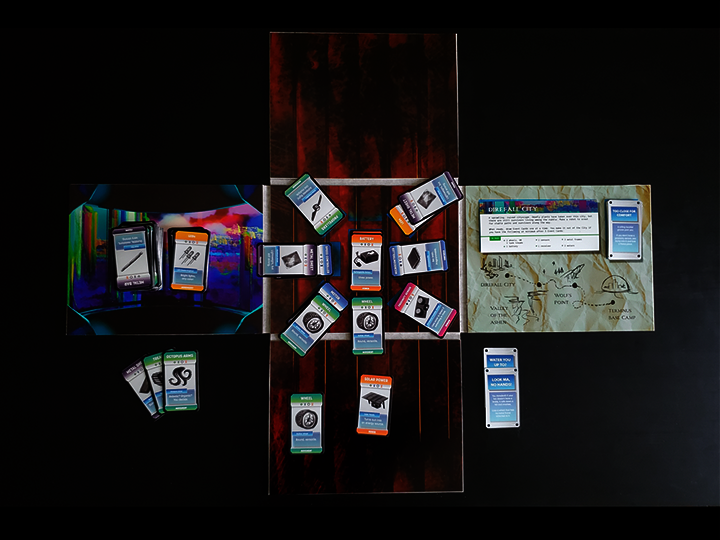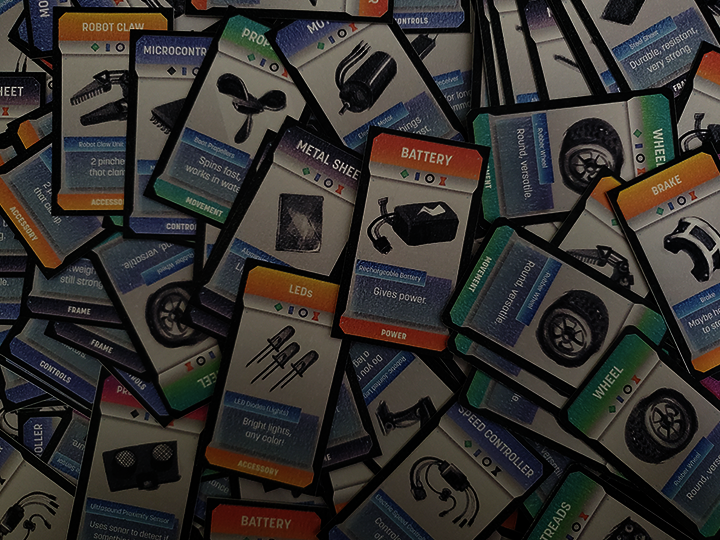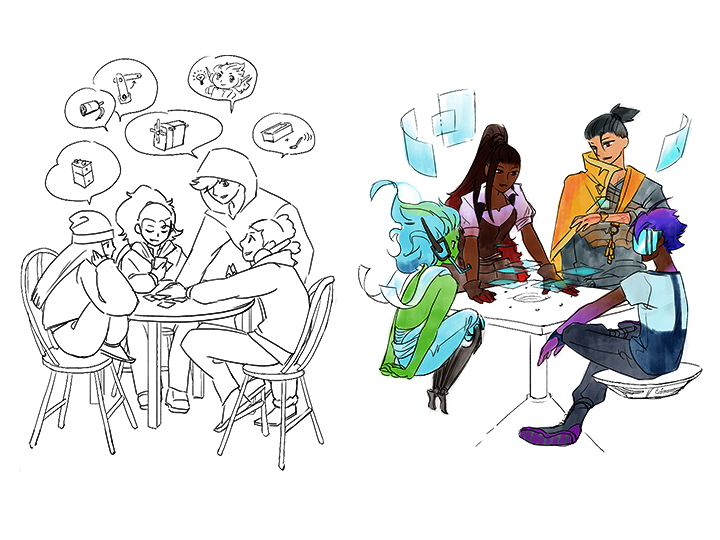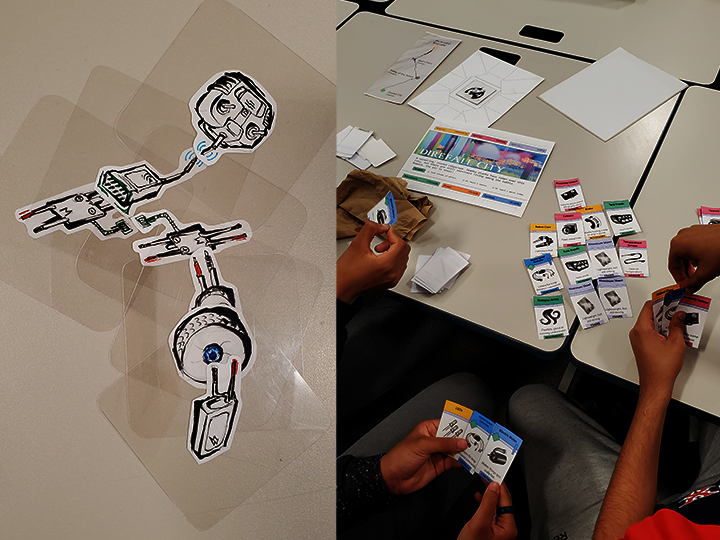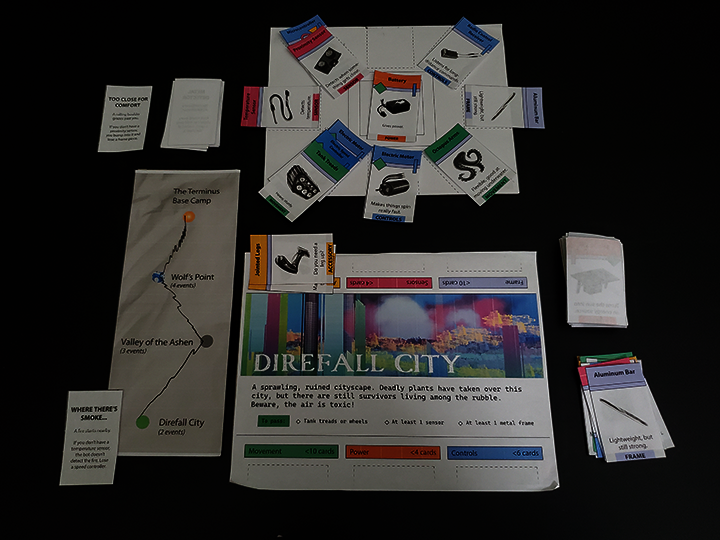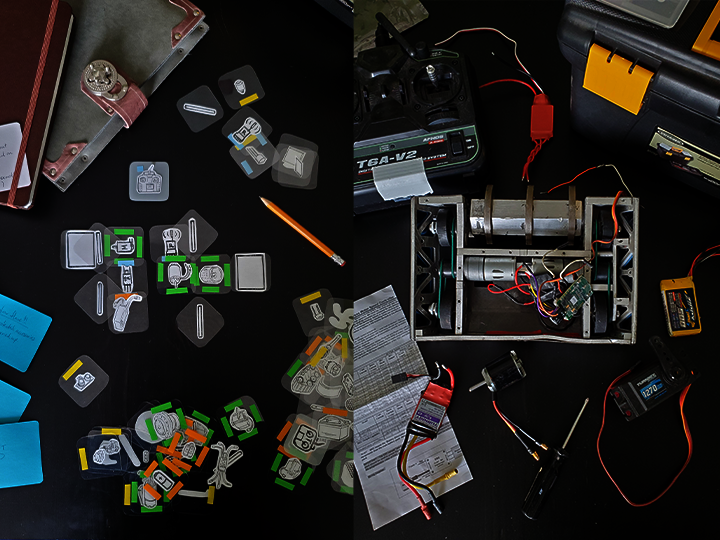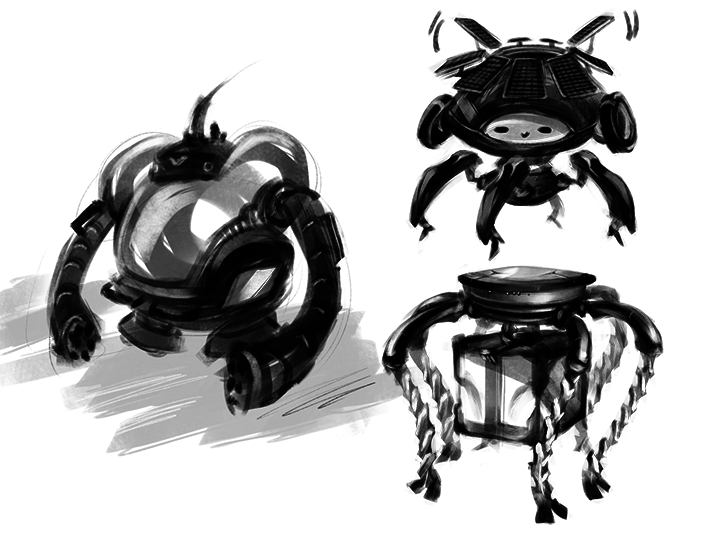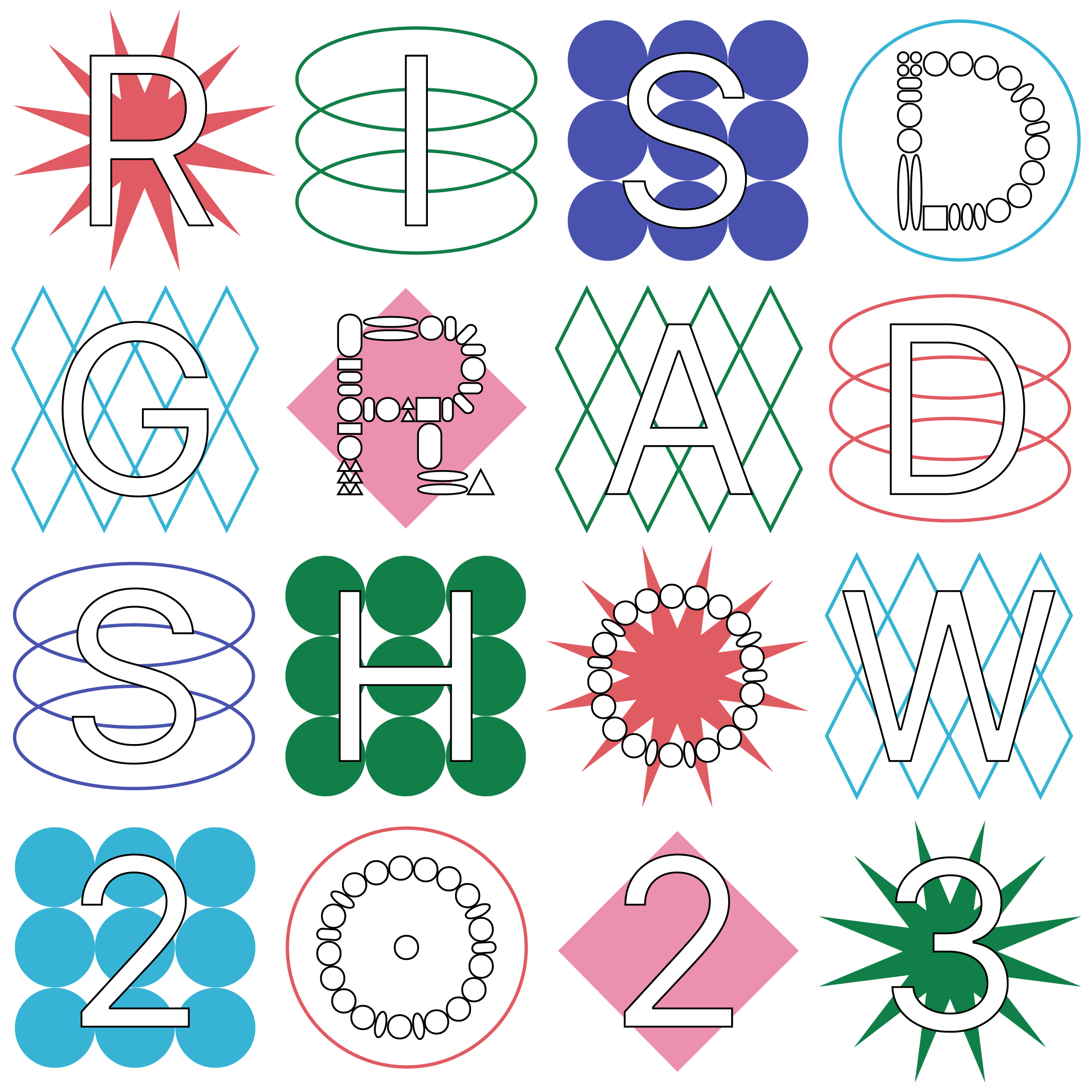How to Play
The story of Mechanaire goes thus: A hundred years from now, we find our world recovering from ruin. Dilapidated buildings, spotty communication towers. Cities are overgrown, the climate itself has also changed. In that post-apocalyptic landscape, a band of survivors build robots to help take them home. First, they need to scavenge for parts. Wheels from a broken car here, the motor of a washing machine there. Aluminum, steel, fur, cloth. Then, using the materials they find, they must build a robot. Their robot must survive in the harsh environment, and can meet all sorts of chance dangers - a fire, rain, boulders. Will they survive the journey?
That is the core of the game. Mechanaire introduces how to build robots by giving players an easier first step. They can get to the fun part of constructing their own robot faster, like designing it with octopus arms, or strategizing about which sensors to put on to avoid which disasters- they think through the story cards high-level use cases, and learn through play and teamwork, without getting disheartened by needing to get technical details exactly right at the very start. The goal is to bring them into the story, so they can internalize their own learning journey with the journey in the game.
Mechanaire is supposed to be a first step game - a game that entices you into the world of robotics through story and fun, and teaches you terminology along the way. It’s a game that doesn’t test you on whether your battery is sufficient enough to power your robot so it maintains a certain speed. It instead shows you the end goal, of something that could be made, so that if they do decide to pursue robotics later, they have a goal in mind. Hopefully then, when they’re deep in trying to debug their robot, they keep that end goal in mind, they don’t get disheartened just yet. The gameplay also takes steps to make sure advanced and beginning players can play together. Illustrations, words and descriptions are provided, and the game uses chance events to equalize the playing field. So even if you know all the parts of the robot, a rogue boulder chance event could still knock your robot out.
